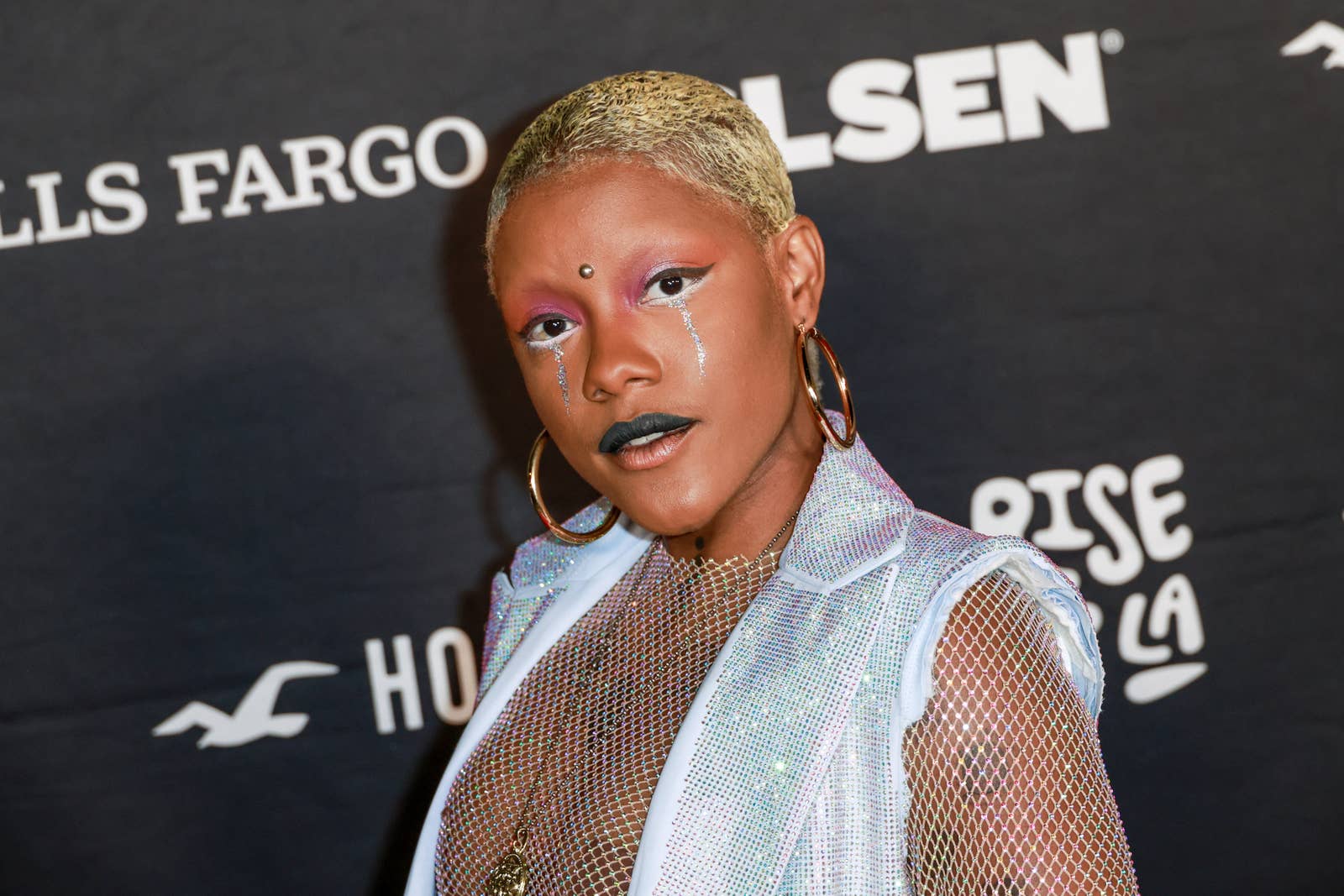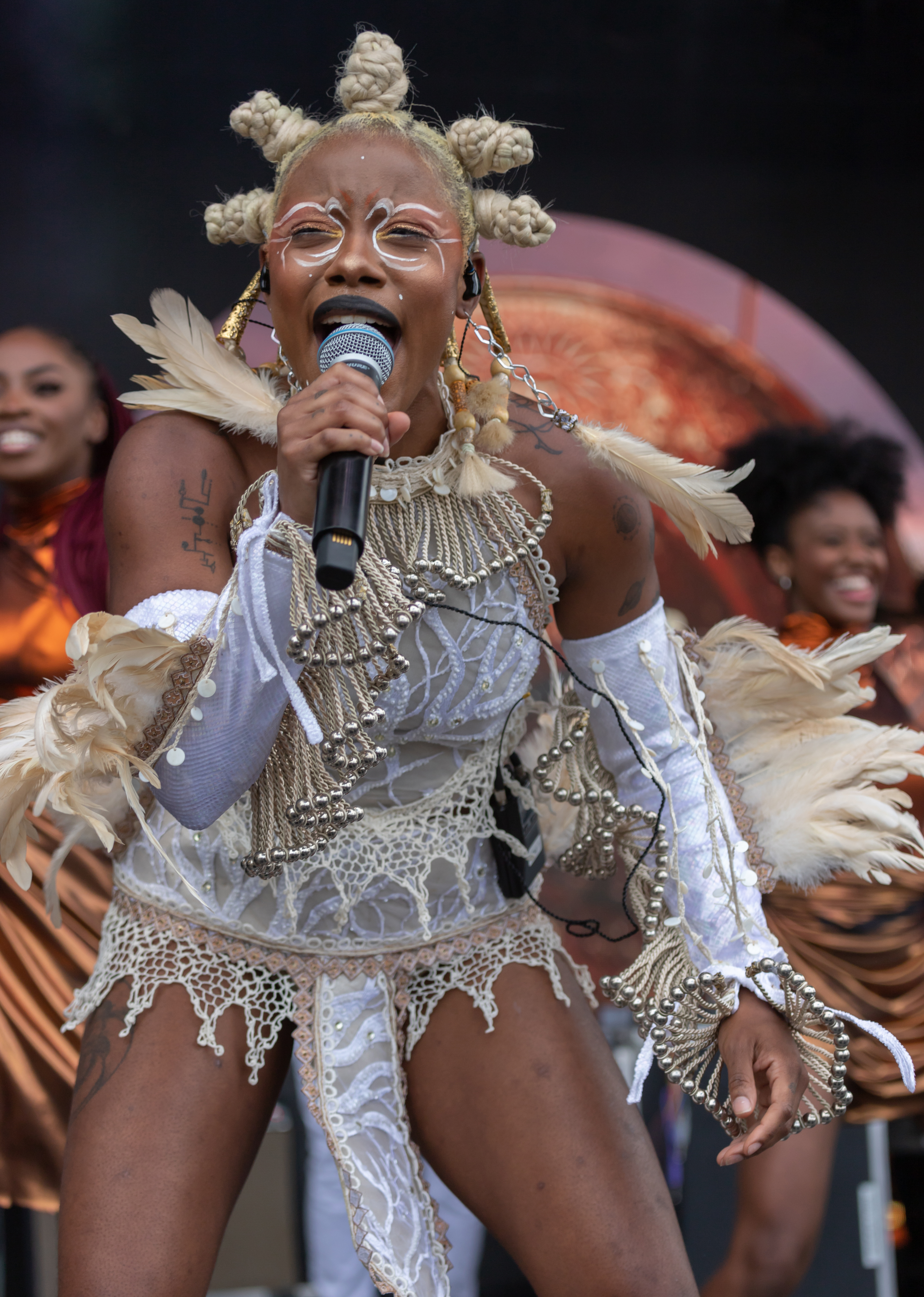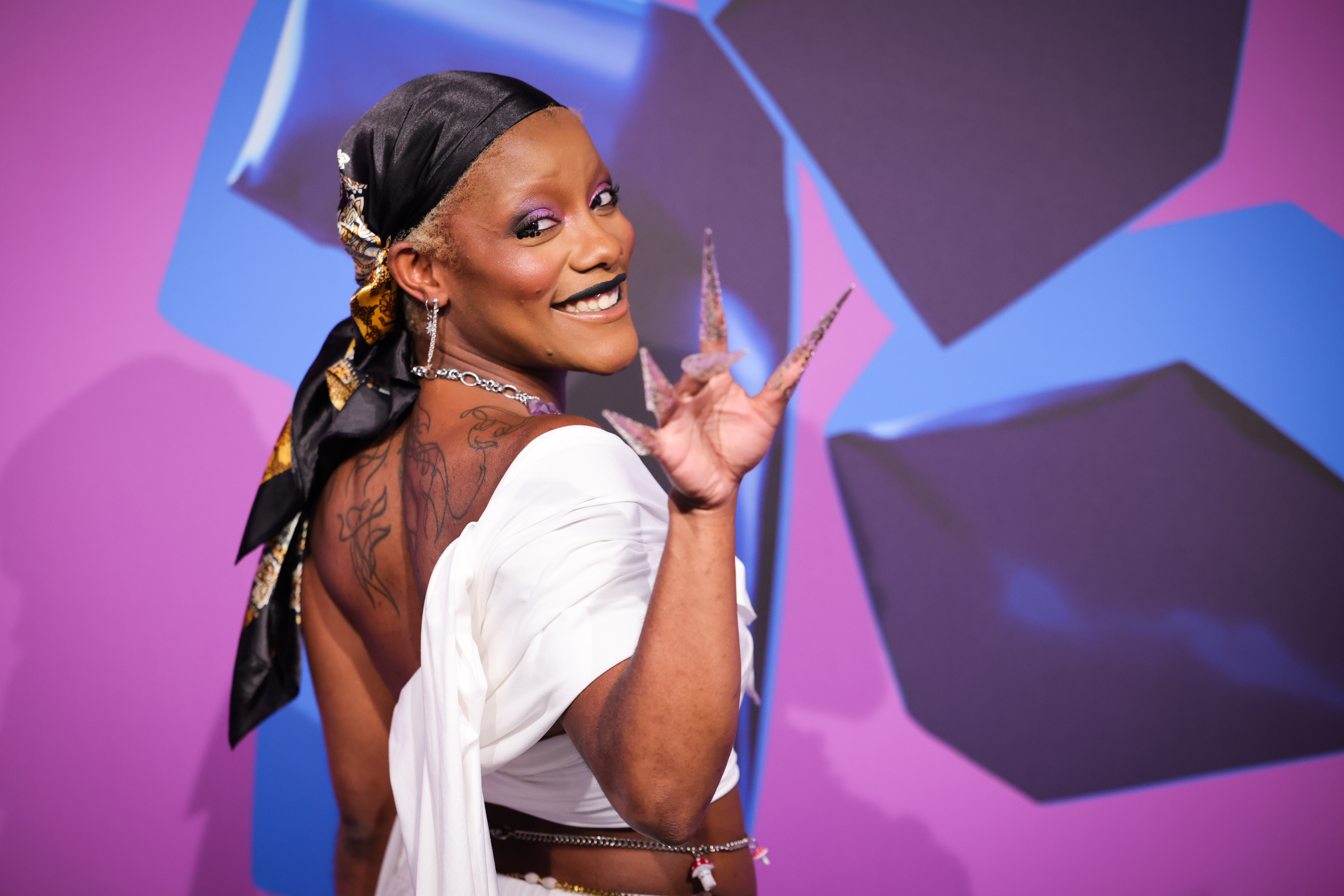
Mystical, transcendent, intuitive. These are all words that describe INIKO, the multitalented singer, songwriter, and instrumentalist from Brooklyn, New York. INIKO, whose pronouns are they/them, first captured the public's attention with their 2022 song "The King's Affirmation." Inspired by Nicki Minaj's "Do We Have a Problem?" the track immediately viral, receiving over 9 million YouTube views and earning INIKO a deal with Columbia Records.
Their success continued last year with the release of "Jericho," a song that was widely remixed and covered on TikTok with over 27 million views on YouTube. Their emotional and emotive songs, powerful vocals, and eclectic style have made them a rising favorite among listeners and a standout in the alternative soul space.
In an interview for BuzzFeed's Black, Out & Proud, I spoke to INIKO about being a nonbinary artist in the industry, their musical influences, and much more. Scroll down to see our full chat.
Note: This interview has been edited for length and clarity.
BuzzFeed: Who were your musical influences growing up?
INIKO: A lot came from my dad. He was in and still is the lead singer of a reggae band called Soldiers. I also grew up singing at church and listening to artists like CeCe Winans, Vickie Winans, Fred Hammond, Kirk Franklin, Tye Tribbett, and Donnie McClurkin.
I enjoyed cartoons, too. I listened to a lot of Disney music [like that of] Demi Lovato, Miley Cyrus, and Selena Gomez. I went from that to rock to indie to hip-hop. The constant inspiration was Michael Jackson. That was actually the first CD I ever owned. But I am very much influenced by all music as long as it's got a fire beat, cadence, and lyrics.
Who's your dream collaboration?
21 Savage. That would be an interesting sound. Also Paramore, or even just Hayley Williams. Willow, Michael Jackson if he was still alive...Whitney Houston, Celine Dion, and of course, Beyoncé. It wouldn't even have to be both of us on the track. I would be happy writing and doing vocal production.

Is there anyone you've been surprised to learn is a fan of your work?
I was surprised that Snoop Dogg enjoyed the music, plus Shaquille O'Neal and [Norwegian singer, songwriter, and producer] Aurora. I'm always like, "Oh my God. It reached you." Not only did you hear it, but you felt a personal connection to it. That's all I'm ever trying to do.
"It's not an agenda. It's reality."
Your song "Jericho" went viral last year on TikTok. What was it like seeing such a strong response to the song?
It was a bag of mixed emotions. At first, I was grateful that it was reaching so many people and existing in so many different forms [from covers to remixes], but it became very frustrating because people were putting out versions without clearing the sample. I know that sampling is very common now, but it's important to do it the right way.
At the time, TikTok didn't have [protections for artists] in place. I think it does now, but we had to reach out to them first, like, "Hey, what is going on? You should be able to protect the artists and musicians that are essentially making people download your app to follow them and be a part of their journey." It was a double-edged sword, but a learning experience, too. The great thing is that I discovered a bunch of dope artists, producers, and instrumentalists, who took the song and made it their own, which is exactly what art is supposed to do.
How has music helped you express yourself, specifically as a Black queer person?
Without music, I don't know where I would be. Music is and has always been a medium for me to discuss hard concepts I think everyone should understand and to convey feelings in ways I may have felt like no one else could. It's therapeutic and healing for me. I make music trying to better understand the human experience and in turn, it helps other people understand and see truths for what they are and not what others tell them. It's not an agenda. It's reality. [I get] to be open about topics and concepts that have always existed, but have literally just been hidden.
Were you ever afraid of being an openly queer artist?
Absolutely. When I started artistically developing at 27, the biggest thing that was hindering me was my confidence. I was going to a Baptist church and an independent, fundamental Christian school and had been told during the developmental stages of my life that who I was was not really who I was. You know, "That's evil. You'll go to hell for that." It led me to repress my true identity and made me feel like my gifts were not mine.
Any time I would get a compliment, I'd shy away from it. It started trickling into my performances. But once I started to be more public about who I am artistically, I was surprised to see how many people reached out to me. They were coming from all walks of life and appreciated me for me. It became much easier to continue being myself. It's still very hard. I get a lot of transphobic comments today. But I'm also reaching so many people.
"I want my music to be the music that starts a revolution."

Who was your first queer crush?
Do animals count? I'm thinking of Nala from The Lion King — she was so pretty! Also, Janelle Monáe. Before that, Corbin Bleu. His face was so soft. He had the big curls. It was giving what it needed to give.
Who was your first Black queer icon?
It's a three-way tie between Janelle Monáe, Lil Nas X, and Tracy Chapman.
What are your hopes for Black queer representation?
I hope it becomes the norm. I don't want to hear, "Oh, this is the first Black queer person to do such and such." I just want it to be a thing. I also hope recognition goes beyond identity, because yes, we are queer. But that's not all we are. We're so much more than that. We're multifaceted.
What do you want your contributions to Black history to be?
I want my music to be the music that starts a revolution. One that makes a change that people will be talking about 20 years from now. I hope people talk about me in a way like, yeah, this was a person who, when they spoke and sang for people, it reminded people of their inner power. It's just a matter of unearthing it, doing that shadow work, undoing things, and decolonizing and indigenizing. Going back to your roots is actually, honestly, the best way to know who you are, and passing it on is equally important. Even after I'm long gone, I'll still be communicating with the world.
Thanks for chatting with us, INIKO! You can keep up with them here and stream them wherever you get your music.
You can read more Black, Out & Proud interviews here.



